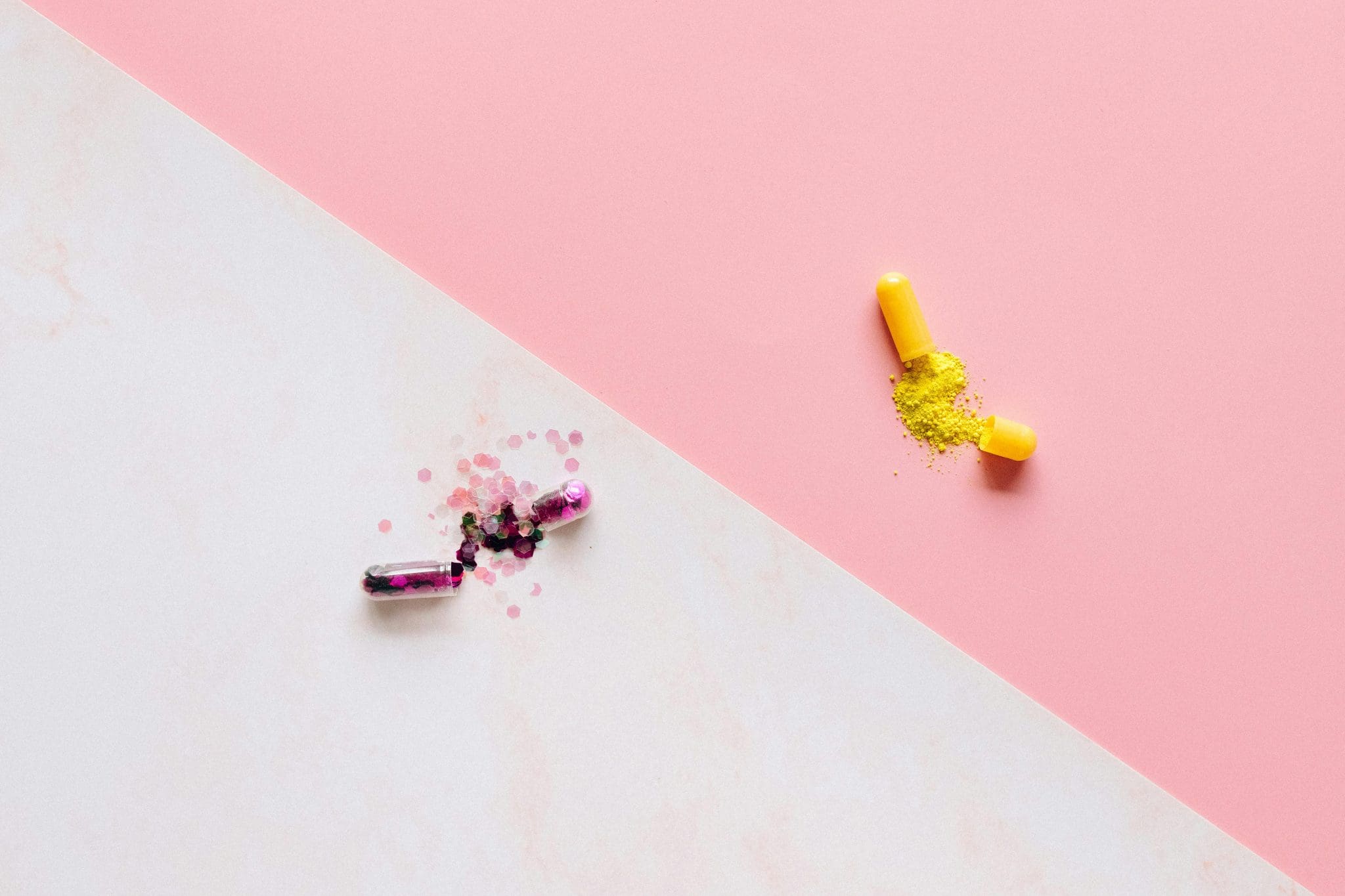Full Disclosure: Clicking on these links could mean a tiny commission for me, at no extra cost to you.
If your mental health shifts with the seasons, you may want to start looking into the different supplements for seasonal affective disorder. When the days gets dark and the daylight hours get shorter, there can be significant changes in your mental health, including increased anxiety and depression. This is called Seasonal Affective Disorder, or what is commonly referred to as ‘the winter blues’.
What is Seasonal Affective Disorder?
Seasonal Affective Disorder (SAD) is a type of depression that comes with changes in the seasons. Typically, people experience SAD during the fall and winter seasons, as the days get shorter and less time is spent outdoors in the fresh air and warm sun.
Who Gets Seasonal Affective Disorder?
According to Help Guide, approximately 10-20% of people don’t experience anxiety or depression until the winter hits. People diagnosed with a mental illness, such as anxiety or depression, are more susceptible to experiencing seasonal affective disorder. However, being diagnosed with a mental illness doesn’t mean that you will experience SAD.
Risk Factors of Seasonal Affective Disorder
Additional risk factors that may increase your chances of seasonal affective disorder include:
- Family history of SAD or another form of depression
- Having major depression or bipolar disorder
- Living far from the equator (SAD is more common among people who live far north or south of the equator, which is likely due to the decreased sunlight during the winter months
Symptoms of Seasonal Affective Disorder
Seasonal affective disorder can feel like your energy has been zapped away, making you feel less motivated and more moody:
- Feeling depressed most of the day and nearly every day
- Losing interest in activities you would typically enjoy
- Having low energy
- Difficulties sleeping
- Changes in your appetite or weight
- Feeling sluggish or agitated
- Difficulty concentrating
- Feeling hopeless, worthless or guilty
- Having frequent thoughts of death or suicide
15 Natural Supplements for Seasonal Affective Disorder
There are numerous natural supplements for seasonal affective disorder that can improve your condition during the months that you suffer. You may even begin to love the season! Okay, so maybe that’s a long shot but these natural supplements can certainly help and here’s why:

1. B-12 supplements: Calming Anxiety Symptoms
Buy Now: Available on Amazon
2. Vitamin D Supplements: Receiving Sunny Benefits Without the Sun
Buy Now: Available on Amazon
3. Gaba Supplements: Keeping your Nerves Calm and Balanced
4. Relora Supplements: Regulating Stress Hormones
Buy Now: Available on Amazon
5. L-Theanine: Enhancing Calmness
L-theanine is an amino acid found in tea leaves, particularly in green tea. It has gained attention for its potential calming and anxiety-reducing effects, making it an interesting consideration for individuals dealing with Seasonal Affective Disorder (SAD).
L-theanine is known to modulate brain activity by increasing alpha wave production, leading to a relaxed and focused mental state. Some studies suggest that it may help reduce stress and improve mood by influencing neurotransmitters such as serotonin and dopamine. While there is limited specific research on L-theanine and its impact on SAD, anecdotal evidence and general studies on its anxiolytic properties raise the possibility that it could be beneficial for managing symptoms associated with seasonal mood fluctuations.
Buy Now: L-Theanine Supplements
6. Valerian Root: Calming an Overactive Mind
Buy Now: Available on Amazon
7. Passionflower Supplements: Better Sleep and Reduced Anxiety
8. Chamomile Supplements: Reducing Anxiety and Seasonal Depression
Chamomile, derived from the Matricaria chamomilla plant, is a well-known herbal remedy often used for its calming and soothing properties. While research specifically addressing Seasonal Affective Disorder (SAD) and chamomile is limited, its potential to alleviate symptoms associated with anxiety and mild depression may make it relevant for individuals experiencing mood fluctuations during the darker months.
Chamomile contains compounds like apigenin that interact with receptors in the brain, promoting relaxation and potentially contributing to mood improvement. Many people use chamomile tea or chamomile supplements to help manage stress and improve sleep quality.
Buy Now: Available on Amazon
9. Magnesium: Supporting Nerve Function and Mood
Magnesium is a vital mineral that plays a crucial role in various physiological processes, including nerve function and mood regulation. While research specifically focused on magnesium supplementation for Seasonal Affective Disorder (SAD) is limited, there is evidence supporting the role of magnesium in mental health more broadly.
Magnesium is known to influence neurotransmitters and may have a calming effect on the nervous system. Some studies suggest that magnesium deficiency is associated with higher levels of anxiety and depression. Therefore, supplementing with magnesium may potentially benefit individuals experiencing symptoms of SAD, such as low mood and energy levels.
Buy Now: Magnesium Supplements
10. Kava: Reducing Anxiety Symptoms
Kava, derived from the root of the Piper methysticum plant, has been traditionally used in Pacific Island cultures for its potential anxiolytic and calming effects. While kava has been investigated for its anti-anxiety properties, its use for Seasonal Affective Disorder (SAD) specifically is not well-documented in scientific literature. Kava is believed to interact with the GABA receptors in the brain, leading to relaxation and reduced anxiety. Some individuals use kava supplements to manage symptoms of stress and mild anxiety, which could be relevant for those experiencing mood fluctuations associated with SAD.
However, it’s crucial to approach kava with caution as it has been associated with potential liver toxicity. Due to this risk, many countries have imposed restrictions on the sale and consumption of kava-containing products. Before considering kava supplementation, it is imperative to consult with a healthcare professional to assess its safety, potential side effects, and to determine its appropriateness for individuals with SAD, especially if there are existing liver conditions or if other medications are being taken.
Buy Now: Available on Amazon
11. Ashwagandha Supplements: Managing Stress
Ashwagandha, derived from the root of the Withania somnifera plant, is an adaptogenic herb with a long history in traditional Ayurvedic medicine. While research on ashwagandha’s specific impact on Seasonal Affective Disorder (SAD) is limited, its adaptogenic properties suggest potential benefits for managing stress, helping with sleep disorders and mood-related symptoms.
Ashwagandha is believed to modulate the body’s stress response by influencing cortisol levels and supporting overall resilience to stressors. Some studies suggest that ashwagandha supplementation may help reduce symptoms of anxiety and improve overall well-being. Given that SAD is often characterized by increased stress and mood disturbances during specific seasons, ashwagandha’s adaptogenic nature may be relevant.
Buy Now: Ashwagandha Supplements
12. St. John’s Wort: Treat Seasonal Depression and Anxiety
St. John’s Wort (Hypericum perforatum) is an herbal supplement that has been traditionally used to address mood disorders, including mild to moderate depression. While some studies suggest its potential for reducing depression symptoms, its use specifically for Seasonal Affective Disorder (SAD) is not as extensively researched. St. John’s Wort is thought to influence neurotransmitters such as serotonin, dopamine, and norepinephrine, which play a role in mood regulation. Some individuals use St. John’s Wort to alleviate symptoms of low mood, fatigue, and changes in appetite, which are common in SAD. However, its effectiveness can vary among individuals, and its use should be approached with caution.
It’s crucial to consult with a healthcare professional before using St. John’s Wort, especially if there are existing health conditions or if other medications are being taken. St. John’s Wort can interact with various medications, including antidepressants and oral contraceptives, potentially reducing their effectiveness. Additionally, its use may cause side effects and may not be suitable for everyone. Professional guidance can help assess the appropriateness, potential risks, and proper dosage of St. John’s Wort for individuals experiencing symptoms associated with SAD.
Buy Now: Available on Amazon
13. Fish Oil: Balancing Mood
Fish oil supplements, rich in omega-3 fatty acids, particularly eicosapentaenoic acid (EPA) and docosahexaenoic acid (DHA), have been studied for their potential benefits on mental health, including mood disorders. While research specifically targeting Seasonal Affective Disorder (SAD) is limited, omega-3 fatty acids are known to play a crucial role in brain function and may have a positive impact on mood regulation.
Some studies suggest that omega-3 supplementation, often derived from fish oil, may be associated with a reduction in symptoms of depression and anxiety. As SAD is characterized by seasonal changes affecting mood, incorporating omega-3 fatty acids into the diet may be relevant, especially during seasons with reduced sunlight exposure.
It’s important to consult with a healthcare professional before starting fish oil supplementation, particularly if there are existing health conditions or if other medications are being taken. Omega-3 supplements may interact with certain medications and can have blood-thinning effects. Additionally, obtaining nutrients from a well-balanced diet that includes fatty fish, nuts, and seeds is generally preferred, and supplements should be used as a complement to, not a replacement for, a healthy diet. Professional guidance can help determine the appropriateness and dosage of fish oil supplements for individuals experiencing symptoms associated with SAD.
Buy Now: Fish Oil
14. Licorice Root: Regulating your Hormones
Licorice root, derived from the Glycyrrhiza glabra plant, has been used for centuries in traditional medicine for its potential therapeutic properties. While licorice root has various uses, including addressing gastrointestinal issues and respiratory conditions, its use specifically for Seasonal Affective Disorder (SAD) is not well-documented in scientific literature.
Licorice root contains compounds like glycyrrhizin, which can influence cortisol activity and may have anti-inflammatory effects. Cortisol is a hormone related to stress response, and some individuals use licorice root to potentially modulate cortisol levels and promote a sense of well-being.
However, licorice root can have side effects, and prolonged or excessive use may lead to issues such as high blood pressure, fluid retention, and electrolyte imbalances. Due to these potential side effects, it’s crucial to exercise caution when considering licorice root supplementation, especially for individuals with certain health conditions such as hypertension or kidney problems.
Before using licorice root or any herbal supplement, it’s advisable to consult with a healthcare professional to assess its safety, potential interactions with medications, and its appropriateness for addressing symptoms associated with SAD. Professional guidance can help determine the proper dosage and ensure the overall well-being of individuals seeking herbal remedies for mood-related concerns.
Buy Now: Available on Amazon
15. Zen+: The Total Package
Zen+ is a supplement designed to enhance mental well-being by combining natural herbs that work synergistically to boost the body’s production of neurotransmitters, including GABA, serotonin, and dopamine. The formulation aims to provide a comprehensive approach to mood enhancement, stress reduction, and improved focus.
Buy Now: Zen+
Taking natural supplements for anxiety, depression or seasonal affective disorder can give you the mental support you need to get through the day (and season). Many of these supplements for seasonal affective disorder can be used as natural aids for anxiety and depression all year long too! So, stop dismissing your seasonal moodiness for the winter blues. There is treatment for SAD and it starts with these supplements and some good ole’ light therapy.








